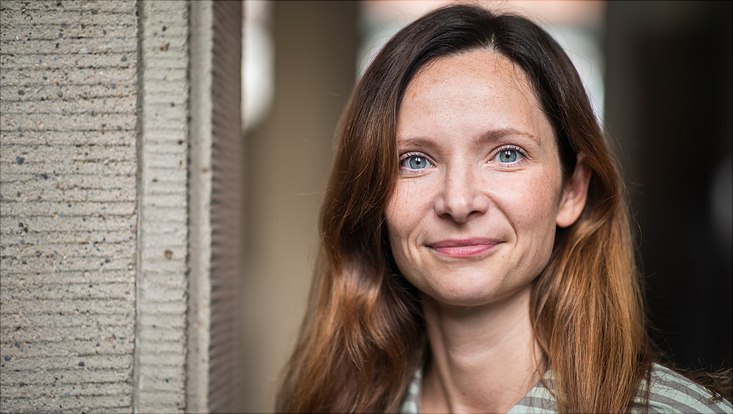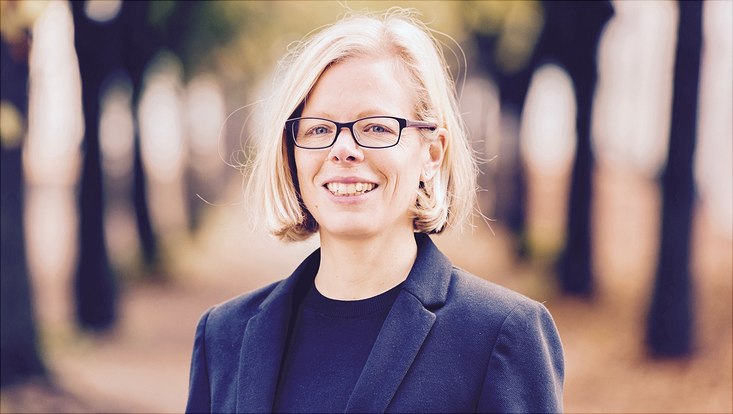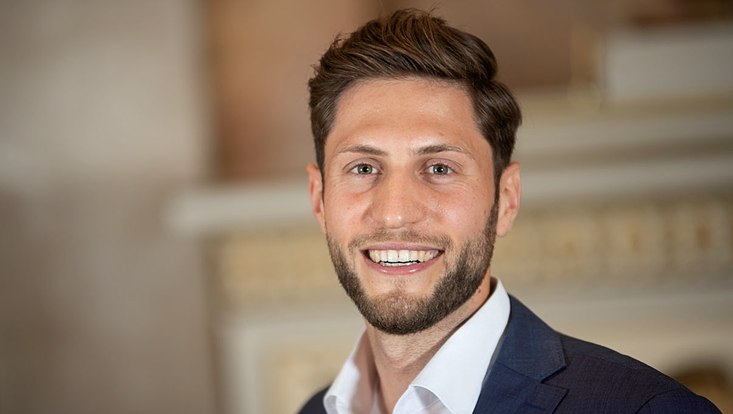Welcome aboard!“What people do and how they shape the world cannot be explained with rules or numbers.”Prof. Dr. Ruzana Liburkina strengthens the Faculty of Humanities.
1 October 2024, by Liburkina/Red.

Photo: Universität Hamburg / Esfandiari
Every year, the University of Hamburg welcomes numerous new researchers. This series introduces them and their areas of research. This time: cultural studies scholar Prof. Dr. Ruzana Liburkina.
Prof. Dr. Ruzana Liburkina previously worked at the Goethe University Frankfurt and joined the Faculty of Humanities at the University of Hamburg in winter semester as a professor of empirical cultural studies.
My research area in 3 sentences:
I do cultural and socioanthropological research, meaning I ultimately focus on better understanding how human (co)existence is organized and given meaning. People, in turn, do not live in a vacuum, but always in entirely concrete physical, technological, and discursive environments. I study the relationships between people, knowledge, technology, and nature as they are negotiated daily and have clear consequences—for example, in life science labs, in agriculture, or in contaminated industrial sites.
This is how I explain my research to my family:
What does arsenic exposure in certain waters have to do with unemployment, rice with political responsibility, or liquid nitrogen with Neoliberalism? Some humanities scholars and social scientists focus above all on what people think and others with what happens in human interactions. I am one of those who looks at connections between things of the most varied sort and how these connections shape people’s everyday lives.
That’s why I’m looking forward to Hamburg—both the city and the University.
I spent my childhood in St. Petersburg, the world’s northernmost metropolis, amidst channels and bridges, not far from the Baltic Sea. This is why coming to Hamburg feels a little bit like returning home, even though I do not know the city very well at all. That may be a little strange, but it’s also very nice. It is a privilege for me to work at the University of Hamburg because it has so much infrastructure and so many projects and initiatives related to my research interests.
These are my plans at the University of Hamburg:
Fundamentally, I would like to foster problem-oriented interdisciplinary exchange, both among humanities scholars and social scientists as well as with natural scientists. We can only benefit in our own specific area of expertise when we consciously acknowledge other forms and bodies of knowledge.
Contributions can and should be made at various levels: by imparting interdisciplinary skills in our teaching, by opening up internal scholarly discussions, and also through joint workshops, lecture series, and grant applications. Planning and implementing all of this together with colleagues and students is incredibly exciting and I am really looking forward to it!
This is why students should attend my courses:
My courses focus a lot on shifting perspectives and uncomfortable discussions. This is fundamental to course content if only because empirical cultural studies problematizes daily life and routines and explicitly researches these.
Moreover, I explicitly motivate my students to take on controversial positions, to tolerate controversy and ambivalence, to think about current specific issues, and to explore the limits of the seminar space. In this way, we not only practice critical thinking but mutual respect and knowledge exchange. And I am very pragmatic: at the end of my courses, students should have a well-stocked toolbox of concepts, approaches, and views that they can use for their further studies and beyond and in which they can easily find something useful.
My research is important for society because:
What people do and how they shape the world cannot be explained or illustrated with universal rules, principles, or numbers. It depends on time and context and is often unpredictable. This is why, in connection with the many fundamental and complex problems of our time, the call for research in the humanities and social sciences that does justice to diversity and unpredictability is growing louder—whether the issue is climate change or digitalization.
Currently, I am looking at different approaches for tackling toxic environmental exposure and their respective effects. When we understand current efforts in detail and ask what they require and whom they benefit and how, then we will have a solid basis for thinking about future solutions.


